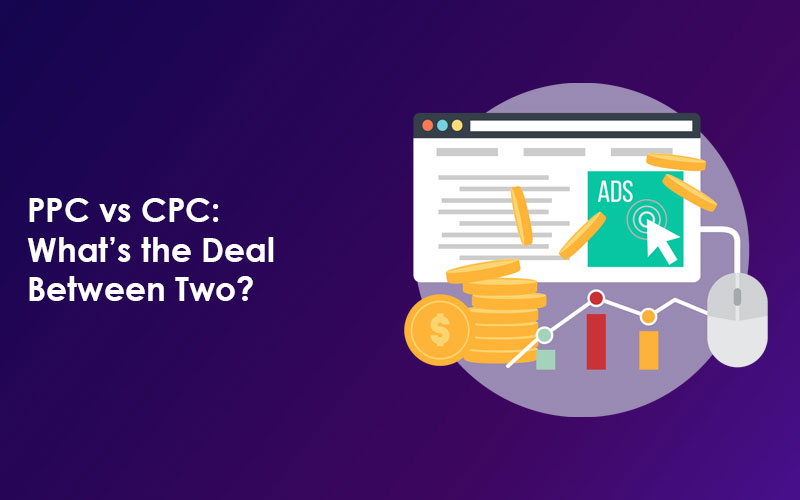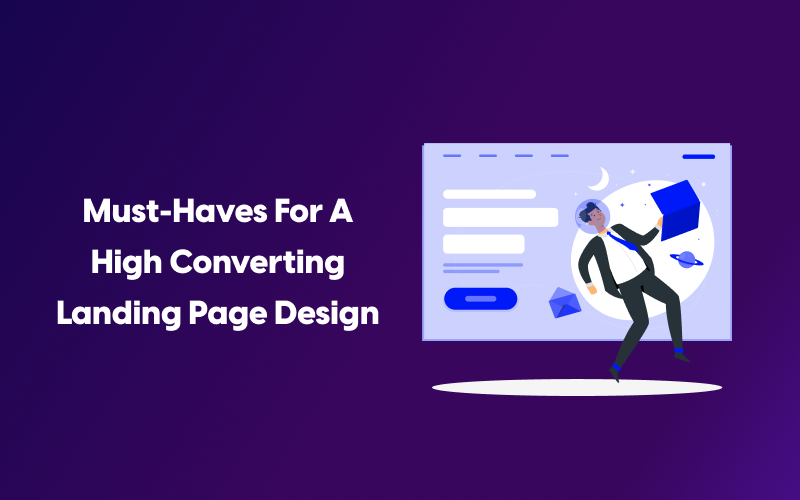In the vast universe of digital advertising, two mighty elements stand tall, hand in hand, commanding attention and driving businesses toward success. They are none other than PPC (Pay-Per-Click) and CPC (Cost-Per-Click). Like celestial twins intertwined in an eternal dance, these two advertising models complement each other, forming an inseparable duo that fuels marketing campaigns with power and precision.
Today, we embark on a journey to unravel the intricacies of PPC vs CPC, uncover their symbiotic relationship, and explore how harnessing their combined power can propel your brand to new heights. So fasten your seatbelts and prepare for an enlightening adventure through the captivating realms of PPC and CPC advertising.
Understanding PPC (Pay-Per-Click) Advertising
In online advertising, PPC (Pay-Per-Click) shines as a powerful strategy for driving targeted website traffic. At its core, PPC advertising is an auction-based model where advertisers bid for ad placements on search engines and various platforms. The concept is simple yet effective: advertisers only pay when users click their ads. It ensures that every penny spent on advertising goes towards tangible results.
Popular PPC platforms, such as Google Ads and Microsoft Advertising, provide a range of features and tools to maximize the impact of PPC campaigns. These platforms offer comprehensive targeting options, allowing advertisers to reach specific demographics, geographical locations, or even individuals who have shown interest in particular topics. Additionally, they provide robust analytics and reporting tools to track the performance of campaigns, measure key metrics, and optimize results.
With PPC advertising, businesses can achieve immediate visibility and generate qualified traffic to their websites. By bidding on relevant keywords, ads can appear prominently on search engine results pages, catching the attention of potential customers actively seeking products or services. The flexibility and control offered by PPC enable advertisers to set budgets, adjust bids, and tailor campaigns to their specific objectives, whether it’s driving sales, increasing brand awareness, or promoting special offers.
Decoding CPC (Cost-Per-Click)
Unlike other models where advertisers pay for ad impressions or conversions, CPC operates on a straightforward principle: advertisers pay for each click their ads receive. This means that every time a user clicks on an ad, a predefined cost is incurred.
CPC advertising offers a transparent and measurable approach to online marketing. Advertisers have greater control over their ad spend, as they only pay when a user takes action by clicking on their ad. This cost-effectiveness makes CPC an attractive option for businesses with limited budgets or those seeking to optimize their advertising expenses.
By carefully setting CPC bids, advertisers can adjust their campaigns’ visibility and position, ensuring that their ads are shown to a relevant audience. Platforms like Google Ads and social media advertising networks offer sophisticated targeting options, allowing advertisers to narrow down their audience based on demographics, interests, and other criteria. This precision targeting enhances the likelihood of clicks coming from users genuinely interested in their products or services.
PPC vs CPC: The Key Differences You Need to Know!
A battle begins with the payment structure and pricing models. PPC advertising charges advertisers for every courageous click, ensuring they pay only when their ad receives direct engagement. On the other hand, CPC advertising sets a predetermined cost for each click, creating a predictable battlefield where advertisers have a clear grasp of their expenses.
Next, we witness the targeting capabilities and reach of these fierce warriors. PPC boasts a formidable arsenal, allowing advertisers to hone in on their target audience with precision. Its advanced targeting options enable pinpoint accuracy, ensuring ads are displayed to the most promising prospects. In contrast, CPC advertising casts a wider net, reaching a broader audience and capturing the attention of those who stumble upon the battlefield.
Control and flexibility take center stage as these warriors clash. PPC advertising grants advertisers unprecedented control over their campaigns. From setting budgets and adjusting bids to crafting highly specific targeting parameters, PPC empowers marketers with the ability to adapt and refine their strategies on the fly. Conversely, CPC advertising offers a more rigid structure, with predetermined costs and limited control over bidding strategies.
Ad placement, position, and visibility become key determinants of victory. PPC advertising thrusts ads into the spotlight, vying for prime positions on search engine results pages. The visibility garnered by PPC can catapult businesses to the forefront of audience attention, ensuring maximum exposure. Conversely, CPC advertising fights a battle for equal footing, with ads placed alongside their PPC counterparts but without the guarantee of premium visibility.
Finally, the metrics and key performance indicators (KPIs) become the judges of success. PPC advertising revels in a realm of quantifiable data, with click-through rates, conversion rates, and return on ad spend serving as its loyal companions. While not as metrics-driven, CPC advertising relies on the number of clicks received, keeping a keen eye on the overall cost per click to measure effectiveness.
How Do PPC and CPC Work Together?
PPC (Pay-Per-Click) and CPC (Cost-Per-Click) are not opposing forces but rather two sides of the same advertising coin.
In PPC, advertisers bid for ad placements, and when a user searches for relevant terms, the highest bidder secures the placement. This is where CPC comes in, as advertisers are only charged when a user clicks on the ad.
By understanding PPC vs CPC marathon, advertisers gain control over targeting, ad placement, and bid management while ensuring cost-effective payment based on actual engagement. This collaboration allows for optimized campaigns, refined targeting strategies, and improved performance measurement, ultimately helping advertisers reach their marketing goals efficiently.
How to Calculate CPC for Your PPC Campaign?
Calculating CPC (Cost-Per-Click) for your PPC campaign is a straightforward process that involves dividing the total cost of the campaign by the number of clicks received. Here’s a step-by-step guide to help you calculate CPC:
- Gather all the fragments of your PPC campaign’s costs, be it the noble ad spend, the valiant management fees, or any other expenses that have joined your campaign’s ranks.
- Seek the wisdom hidden within your campaign’s data or analytics platform, where the number of clicks received proudly stands. Unveil this coveted number and hold it close.
- Unleash the power of arithmetic, where numbers collide, and calculations take form. Take the total cost acquired in the first step, and divide it by the number of clicks, unveiled in the second step. Behold, the result shall be your noble CPC.
Here is an example:
Let’s say you have spent around $700 on your PPC ad campaign and you received 300 clicks, and the calculation would be:
CPC = $700 / 300 clicks
CPC = $2.33 per click
It means that, on average, you are paying $2.33 for each click generated by your PPC campaign.
Why CPC Matters for PPC Success?
CPC is a vital performance indicator, shedding light on your PPC endeavors’ cost efficiency and effectiveness. By understanding the average cost you incur for each click, you gain valuable insights into the financial impact of your ad spend and can make informed decisions to optimize your budget allocation.
Moreover, CPC also plays a crucial role in evaluating the competitiveness of your campaigns. By benchmarking your CPC against industry standards and competitor metrics, you can assess the effectiveness of your bidding strategies, ad targeting, and overall campaign performance. It serves as a compass to gauge the value you derive from your investment and identifies areas for improvement.
Furthermore, CPC influences your return on investment (ROI) and the profitability of your PPC campaigns. By monitoring and optimizing CPC, you can strike a balance between cost control and generating high-quality clicks that lead to desired actions, such as conversions or purchases. Maximizing ROI becomes achievable when you manage CPC effectively.
Ultimately, CPC matters for PPC because it aligns the financial aspect of advertising with campaign performance. It empowers you to make data-driven decisions, refine your targeting, optimize bids, and enhance ad copy to achieve better results. By keeping a keen eye on CPC, you unlock the potential for increased click-through rates, improved conversion rates, and a stronger bottom line.
PPC vs. CPC: Unveiling the Winner!
While it seems like PPC and CPC may be locked in a fierce battle, vying for the crown of superiority. However, the truth is that there is no definitive winner in this rivalry. Instead, PPC and CPC are complementary metrics, working in perfect harmony to orchestrate a comprehensive and triumphant campaign. Nevertheless, you should not miss getting to know about another important metric of PPC campaigns – CPA (Cost per acquisition). So, If you’re looking to thrust your PPC campaign to new heights, you’ve come to the right place. Contact us today to elevate your PPC campaigns to unprecedented levels of success.




